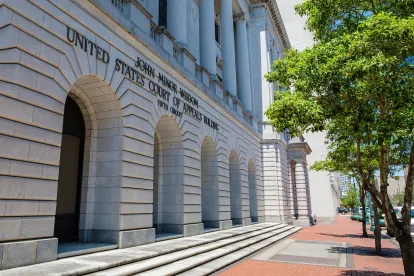On July 14, 2023, the U.S. Court of Appeals for the Fifth Circuit issued an administrative stay of an order that would prohibit certain federal officials and agencies from communicating with social media companies on content moderation issues.
The injunction is the result of a lawsuit filed in the U.S. District Court for the Western District of Louisiana. There, the Attorney Generals for Missouri and Louisiana sued several federal government agencies, alleging the government violated the First Amendment by coercing and illegally collaborating with social media companies to remove content. The coercion allegedly included threats of antitrust actions, repeal of Section 230 of the Communications Decency Act, and other conduct intended to impact platform content.
The plaintiffs sought a preliminary injunction prohibiting the government from taking any action to coerce social media companies to remove content. The district court ultimately issued a broad injunction prohibiting the defendants from flagging content for removal, meeting with social media companies to induce content removal, or otherwise collaborating with those companies to remove content. However, the injunction permitted defendants to “notify” social media companies about threats to national security, criminal activity, and illegal tampering with the voting process, among other exceptions.
The government promptly sought relief in the Fifth Circuit, seeking to appeal and stay the injunction, and alternatively, for an administrative stay. On appeal, the government argued the injunction will interfere with lawful government conduct and collaboration because it effectively bars all communications between the government and social media companies. On July 14, 2023, the Fifth Circuit issued a temporary administrative stay and ordered the appeal be expedited. On August 10, 2023, the Fifth Circuit will hear argument extending the stay for the duration of the appeal.
The pending appeal raises a host of important issues. If the injunction is upheld, it may impact the type of information that may be posted on social media platforms and the ability to prevent electoral interference. As the 2024 Election Cycle begins, the injunction could potentially chill communication between the government and social media companies that has become routine following allegations of Russian interference in the 2016 elections. Indeed, the U.S. State Department canceled its routine election security meeting with Facebook following the district court’s injunction. Further, some believe it could restrict government communication in the wake of a natural disaster and how law enforcement alerts social media companies of possible criminal threats, among other domestic security issues.
On the other hand, if the district court’s order is reversed on appeal, it may raise more issues and draw additional scrutiny over the relationship between government and social medial companies. These companies may increase contact with government agencies about moderation policies and issues, and as a result, the government may be empowered to have more of a say about those policies.




 />i
/>i
